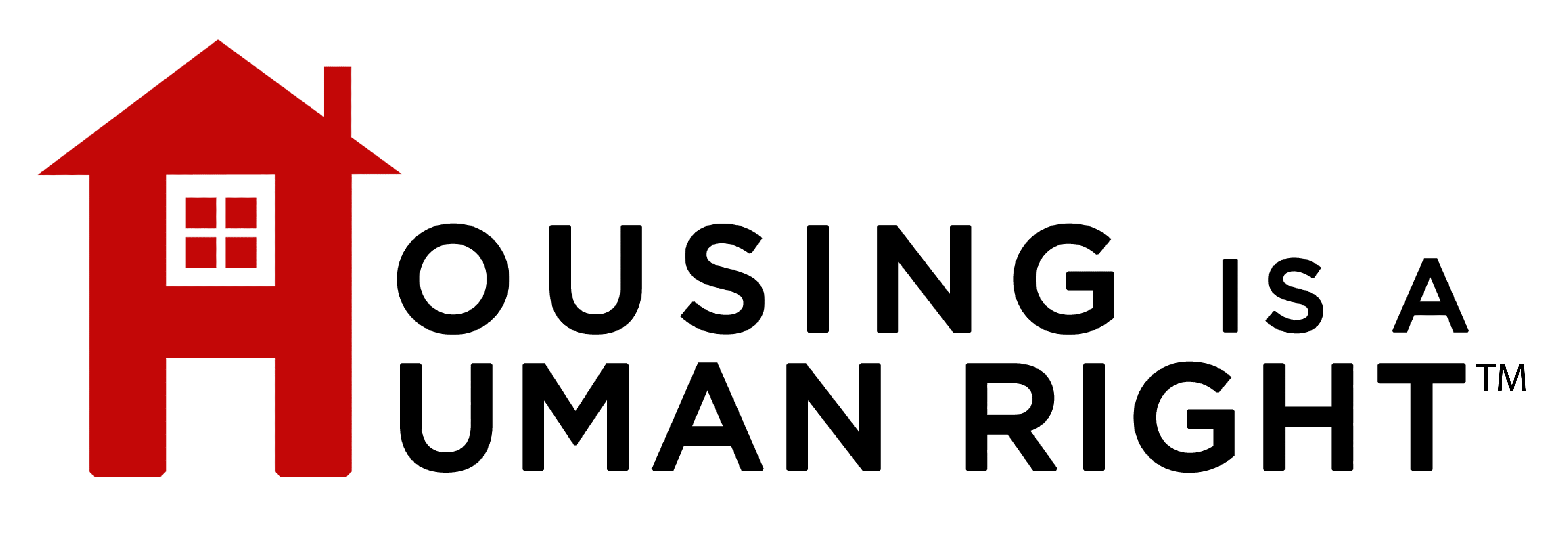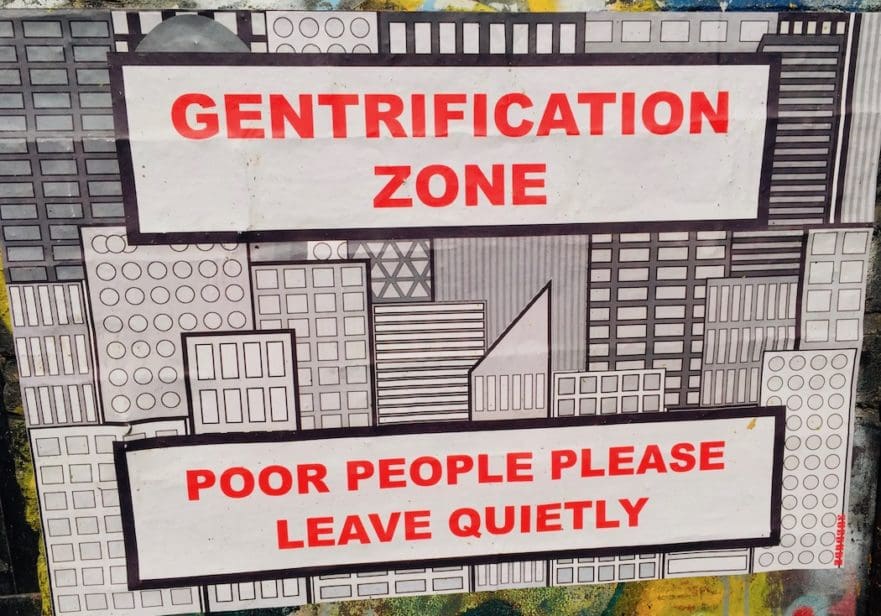Wall Street is euphoric over federal “opportunity zones.” Many local politicians are wild with excitement. Accelerator for America, a kind of think-tank founded by U.S. mayors, will soon hold a summit at Stanford University to crank up interest. But a growing number of activists believe that opportunity zones will add jet fuel to gentrification crises that are already devastating lives in American cities.
“Corporate America continues to chase outsized profits at the expense of middle- and working-class people,” says Rene Moya, director of Housing Is A Human Right. “Politicians cannot allow opportunity zones to turn into ‘gentrification zones.’ Americans are already suffering due to runaway corporate greed and the elected leaders who too often champion policies that propel it. Opportunities for improving one’s life must include everyone, not just the wealthy few.”
Opportunity zones have largely slipped under the public’s radar, but that’s not been the case among corporate investors seeking big tax breaks and king-sized profits. “Distressed America is Wall Street’s hottest new investment vehicle,” the New York Times recently reported. “Hedge funds, investment banks, and money managers are trying to raise tens of billions of dollars this year for so-called opportunity funds.”
Opportunity zones came into existence through President Donald Trump’s 2017 tax package. Supporters promote the program as an enticing way to direct billions into poor areas — in return for their largesse, investors receive generous tax breaks.
“Fervor about opportunity zones is heating up across the U.S.,” Bloomberg News reported. “For a limited time, investors who develop real estate or fund businesses in these areas are able to defer capital gains on profits earned elsewhere and completely eliminate them on new investments in 8,700 low-income census tracts.”
With input from local politicians, governors nominated opportunity zones for their states in 2018, which the federal government either approved or rejected. There are now opportunity zones in all 50 states as well as Washington D.C. and five U.S. territories. In California, that includes, among other areas, Alameda, Fresno, Los Angeles, Orange, Riverside, Sacramento, San Diego, and San Francisco counties.
Understandably, longtime residents of working-class communities may embrace opportunity zones as an investment program that’s been needed for years, perhaps decades. But they should ask if the new development and businesses are actually for them.
“I really don’t know what to say other than these are not programs that are going to benefit low-income people,” Marina Ortiz, founder of East Harlem Preservation, a neighborhood advocacy group in New York City, told Bloomberg News. “I have seen these programs come and go before, and I have very little faith in them. The rental market’s going to shoot up. I don’t know what else is coming, but it’s not for us.”
Other experts and activists, including Housing Is A Human Right, have been sounding the alarm. For many, opportunity zones is another top-down, trickle-down policy that pushes government-sanctioned gentrification — politicians delivering tax breaks or zoning favors to developers and real estate investors to redevelop a community while longtime middle- and working-class residents, especially those of color, get slammed by gentrification and displacement.
Since opportunity zones are located in every state of the union, we may experience a tidal wave of gentrification unlike anything we’ve ever seen in America — worsening, even more, our housing affordability and homeless crises.
In Houston, The Kinder Institute for Urban Research at Rice University revealed: “The risk of ‘gentrification on steroids’ [in Houston] becomes obvious: Two-thirds of the neighborhoods susceptible to gentrification in the near future are located in opportunity zones. It’s entirely possible that opportunity zone investments – which should be a good thing – will accelerate the gentrification process that’s already underway.”
In an article titled “Opportunity Zones in West Coast tech hubs rank highest for gentrification risk in new study,” GeekWire reported: “Researchers discovered that among the opportunity zones likely to be the most lucrative for investors, the ones in West Coast tech hubs have the greatest risk of displacement.”
In Miami, rapper and New Times columnist Luther Campbell wrote: “Republicans, investors, developers, and fund managers claim the tax breaks mean more projects in poor neighborhoods. But they really are nothing more than a scheme to force black and brown people out of their homes. Developers will buy cheap land; put up market-rate apartments, offices, and stores; and then reap the benefits of the tax breaks.”
In Chicago, community activist Siri Hibbler told the Chicago Sun-Times: “No one even knows how it works. The fear residents have is that big developers are going to come into the neighborhood because it’s an opportunity zone and they are going to wake up one day with all the land sold to these people.”
In other words, opportunity zones may improve a neighborhood, but working-class residents, who currently live there, will be shoved out and won’t gain a thing. Instead, more affluent people, who can afford new luxury apartments and high-priced shops, will move into the community and get the spoils.
But local politicians can step in and ensure that opportunity zones don’t spark a gentrification tsunami. The Urban Institute, for example, recommended, among other things, that municipal leaders “preserve affordable housing in zones by identifying neighborhoods most likely to gentrify” and “partner with community stakeholders in determining what kinds of development are needed in their neighborhoods.”
In Boulder, Colorado, elected officials have largely put development in an opportunity zone on hold. They want to take a better look at land-use policies, make possible changes, and avoid mass displacement of current residents.
On March 18, at the Opportunity Zone Investor Summit, co-sponsored by Accelerator for America and Stanford University, elected officials should be bold and clear: massive gentrification and displacement will not be tolerated — investors must work closely with the community. Those local politicians, of course, must do the same. They must protect their vulnerable constituents.

